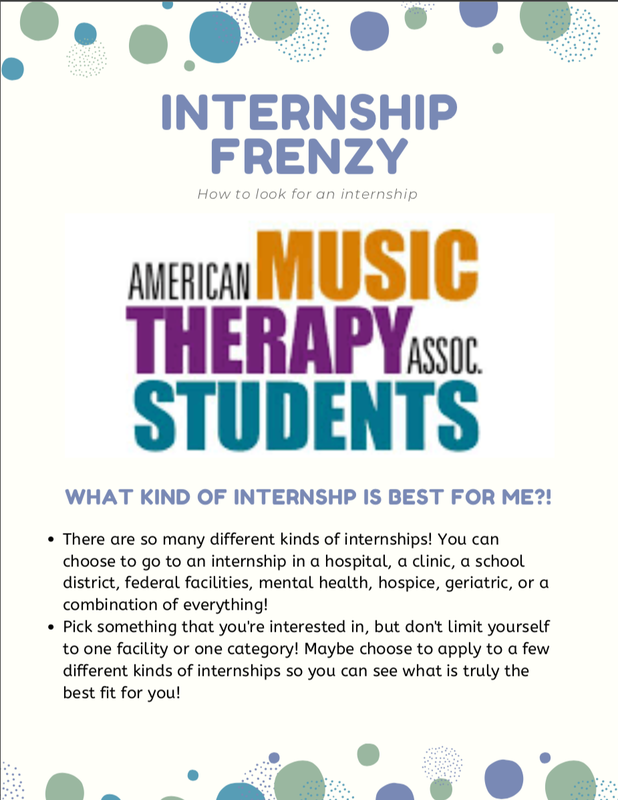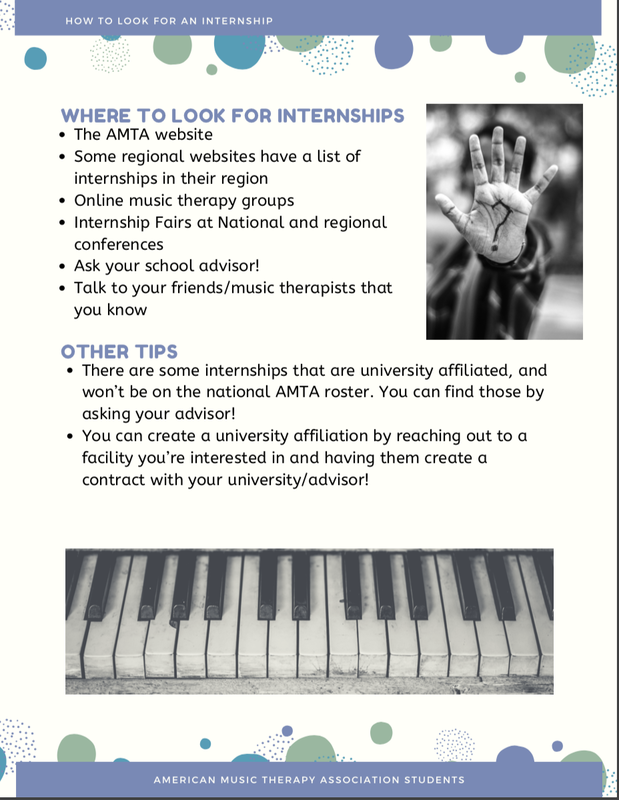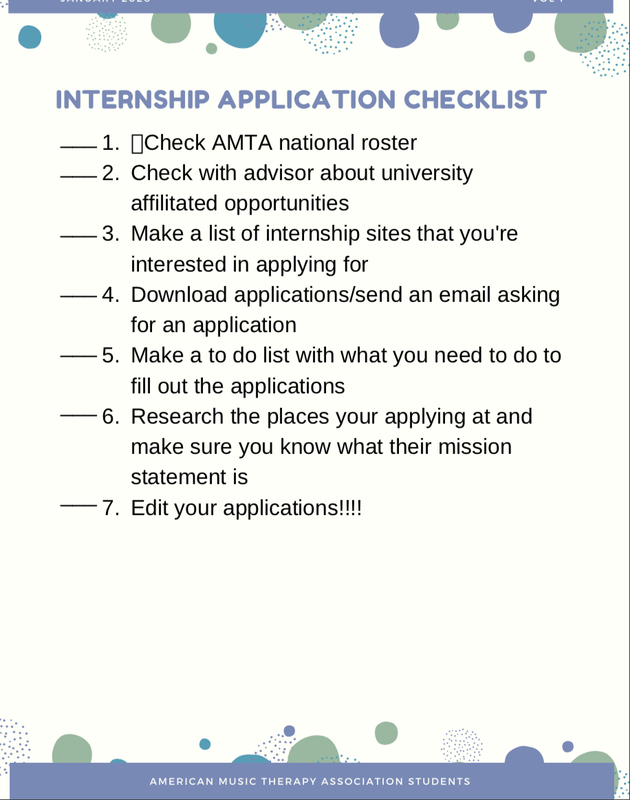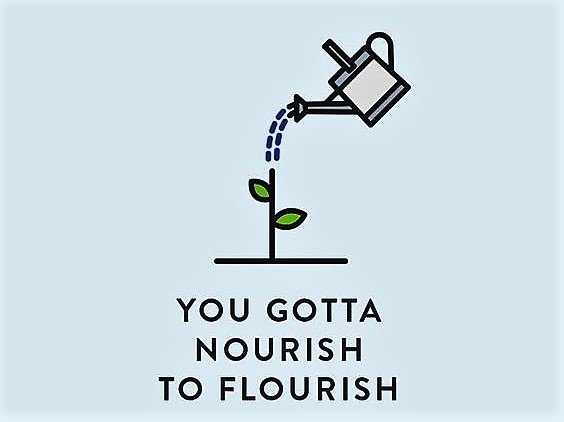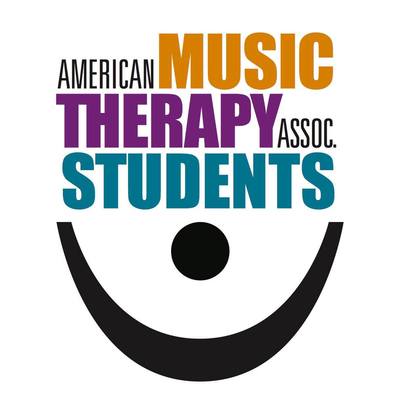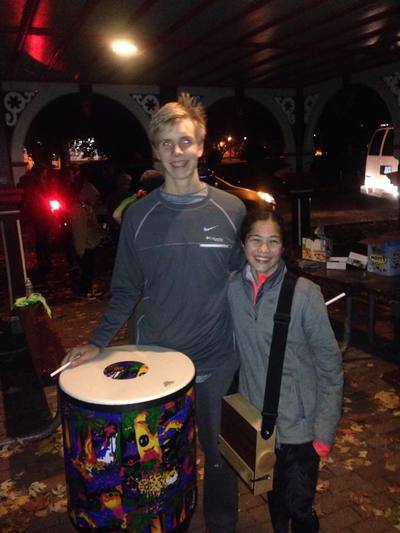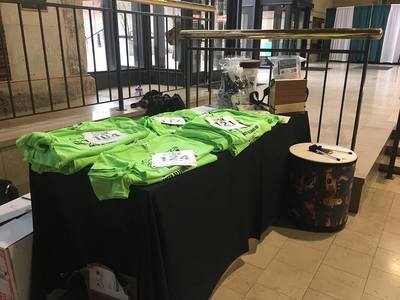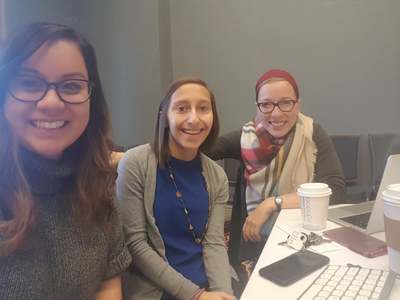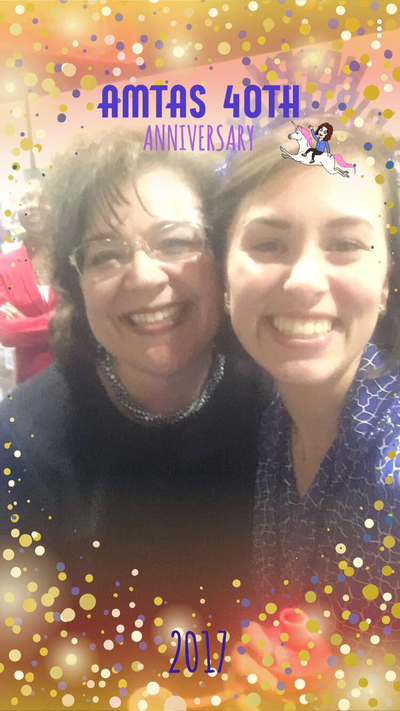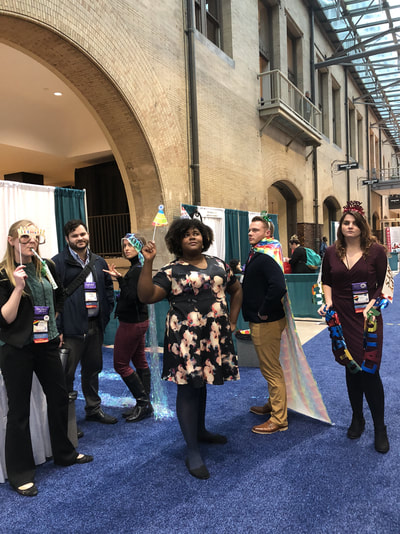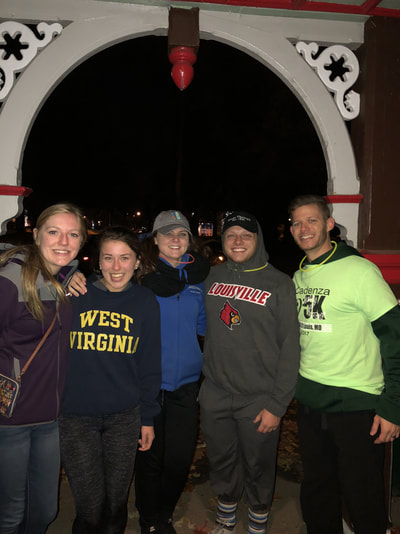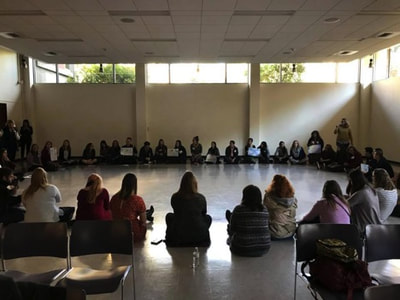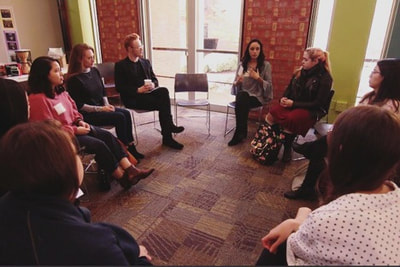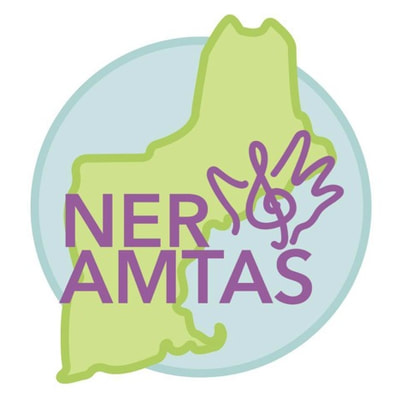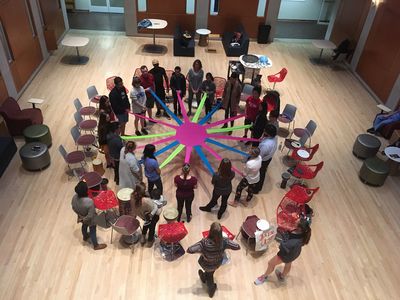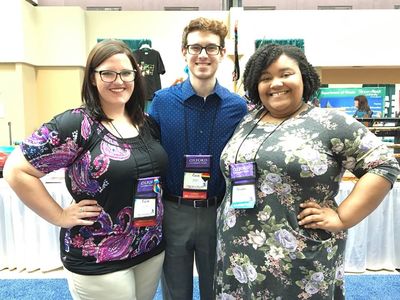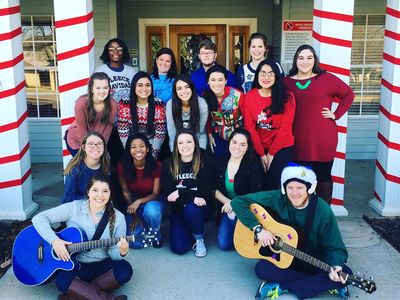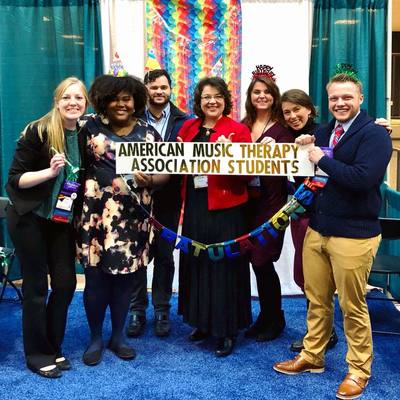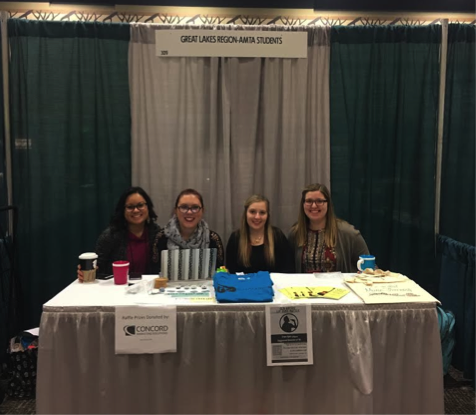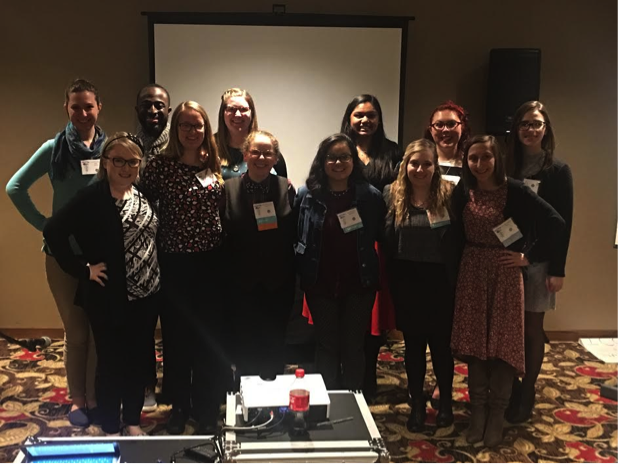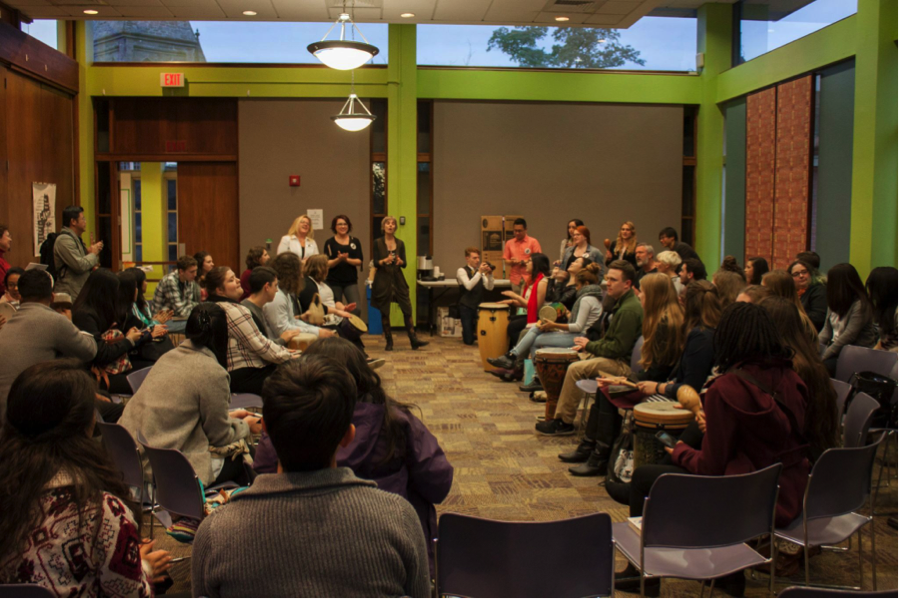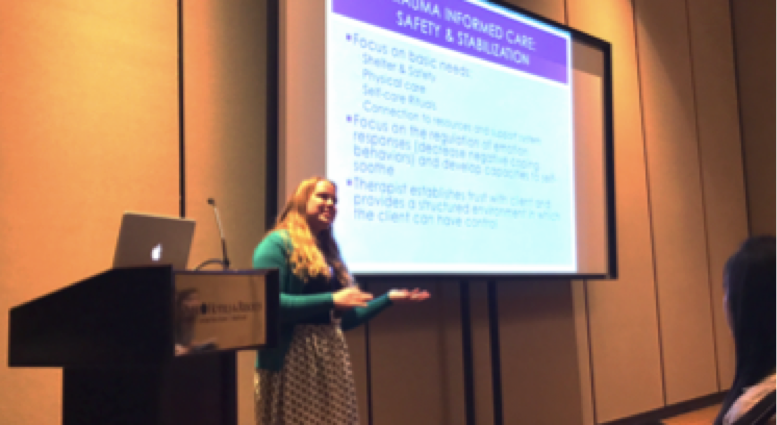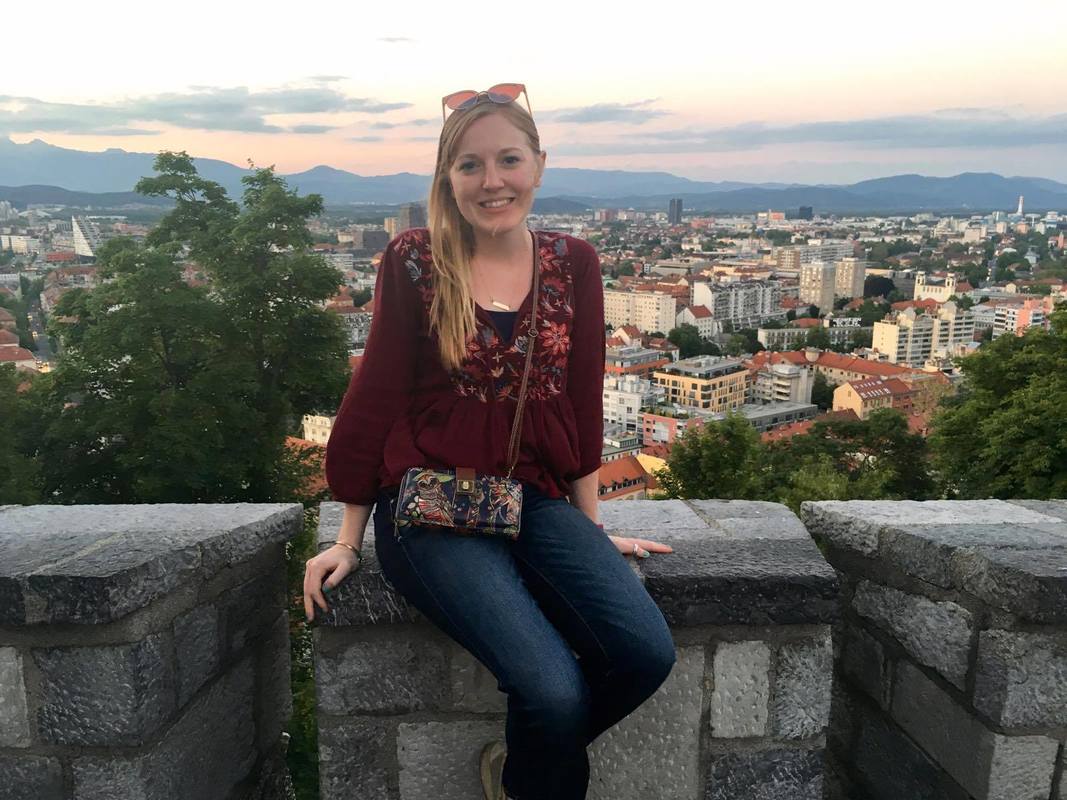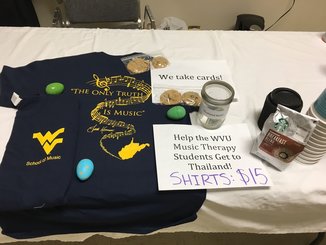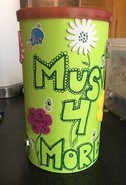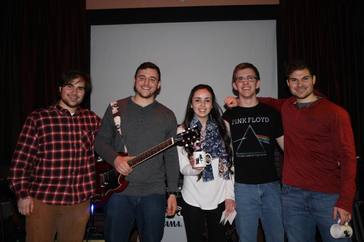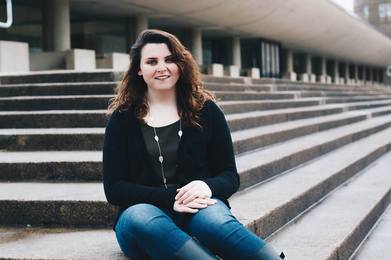|
Are you interested in applying to be a music therapy major? Check out the list of AMTA approved music therapy programs below, and ways that you can contact them!
I could give you statistics, and research on self-care all day long, but it feels more meaningful to answer questions that WE all have about self-care in every day life. Below are a few questions that were submitted by AMTAS members! I want to acknowledge that I am not an expert in self-care, and while I have done a lot of research on it and practice it regularly, self-care is experienced differently by so many people and I welcome a discussion about what works best for you. How do you go about finding what self-care method works for you? Just like with anything else in life, practice makes perfect! In my personal experience, I didn’t know exactly what worked for me when I started learning and practicing self-care. It took a lot of trial and error to find self-care routines that didn’t add on to the stressors of every day life. My advice to you would be to do some research about different self-care methods and try each one for a week! Give it a chance, but don’t be discouraged if that method isn’t for you. Every person is different, and every person needs something different to empty their stress cup and fill themselves up with peace and happiness. {Image found at joshuahook.com } What if you don’t have time for self-care every day?
Daily self-care doesn’t need to be an elaborate and time-consuming event! Yes, every once in a while, it’s nice to go all out and pamper yourself, but sometimes we truly don’t have time to go “all out” every day. Remember that self-care doesn’t have to be a big gesture! It can be as simple as going to bed earlier, meditating for a few minutes, or going on a short walk. It doesn’t take much to give yourself some much-needed attention, and in the long run doesn’t only help you, but also your clients. Try to do some sort of self-care for yourself every day, even if it’s just for 5 minutes. How do you navigate your own emotional reactions to your clients' experiences that you may be able to relate to/ have had experience with in your past? The biggest advice that I have found while researching this question is to have an outlet where you can talk to someone. There is a stigma against seeking out professional help in the helping profession career. We are in this position to help others, and for some reason it is looked down upon for us to have help when we need it. We can’t be our own therapists, and when we run into situations where our past experiences could potentially affect treatment, it is our responsibility to get help! There should be no shame in talking to a professional psychologist, if for nothing else to be able to open up about past experiences and process through any trauma we may not even realize we have. So, go talk to someone about these emotional reactions, and process why you are having them in the first place! Helping yourself cannot only make these feelings disappear, but also make you an even more effective music therapist. “I've found that seeking out and maintaining my own therapy has been a key piece in my self-care practice.”- Anonymous AMTAS member
Hey AMTAS! It has been nearly 4 months since national conference and it’s crazy to think about how time flies when you are having fun! Before I get in to looking back at conference, I wanted to take a chance to introduce myself, so that you know who is writing these blog posts! My name is Jordan Marshall, and I am currently in my last semester of coursework at Drury University! I am a vocal primary and have been classically singing since early high school. Along with being secretary of AMTAS, I am also secretary of MWRAMTAS, and president of my school’s music therapy organization, Drury SMTA. After I am done at Drury, I will be doing my internship at “A Place to Be” in Middleburg, VA. Music has always been one of the most important things in my life and finding music therapy and AMTA was one of the best things that has ever happened to me! In my free time, I also really enjoy organizing things and working on my overall wellness through working out and watching Netflix! I am super excited to serve as secretary of AMTAS and hope that through this blog I can keep us all connected! New Mission StatementThe mission of the Student Affairs Advisory Board and AMTAS is to provide guidance, support, and knowledge to the American Music Therapy Association Students and regional boards, be the communication liaison between students and their faculty, act as an educational resource concerning members learning and administration of bylaws, and uphold rules, regulations, implementation of charges, ethical guidelines, and standards of practice. A Regional Snapshot:It is truly inspiring to see how much all of the different regions of AMTAS contribute to making our profession better! Here are such a FEW of the MANY things that the different regions have accomplished in 2018!
South-Eastern Report: The South Eastern Region worked a lot on their communication with all of the schools in their region through social media efforts! They gave out two scholarships in their region, as well as doing a giveaway for an AMTA membership!
Scholarship CornerWe are so fortunate that AMTAS has the funds to give away scholarships each year! Each of the people that won this past conference deserved it and deserve some praise, so here are two snaps for them *snaps twice*. Below are the names of the 2018 scholarship winners! Scholarship Winners
· STARS Undergrad: Sophia Heitkamp · Stars Internship: Emily Zeitz · Stars Graduate: Julian Brill · CBMT Scholarship: Melinda Glass · AMTA Membership: Katherine Long · Regional Support Funds: SER receives $300, GLR receives $100 Being secretary, I got to request, read, and compile regional reports for the AMTAS Spring 2018 Newsletter. And I have to say, I absolutely loved reading all of them. In all that the regions have done in their reports, I noticed a common denominator- money! There were so many scholarships given away, fundraisers accomplished, new merchandise created, and more! There were so many wonderful ideas that I decided I wanted to write my first blog post on fundraising, a topic that’s quite related to money.
Let’s talk about the benefits of fundraising.
New England Region funded their second annual open mic fundraiser at the LOFT at Berklee College of Music. This fundraiser also included raffle prizes, a bake sale, and a featured performance from the Nate Chung Project! So many great ideas in one, and they raised $200, which went to two conference scholarships. Mid-Atlantic Region successfully sold their new merchandise, coffee mugs. On top of that, their schools also donated the fundraiser money to the Momentum Choir of Western New York. And this are just a couple of our regions. Head to our Spring Newsletter to read more! To top this blog post off, I wanted to congratulate again all the regions who have done such commendable things. Fundraising is never easy and there is never a full guarantee that it’ll be as successful as we want them to be, but I personally am so glad we can depend on each other for inspiration and ideas. I can’t wait to use some of your fundraising ideas for my student organization! Hi, AMTAS! On November 14th I hopped on a plane in Pittsburgh and hopped off in St. Louis for the 2017 Annual AMTA Conference. Conference was a whirlwind with the AMTAS 40th Anniversary celebration, our two AMTAS business meetings, meeting with the student representatives from the regions, and Passages, which is our national student and young professional conference. Here’s a rundown of what we learned from the regions and everything that happened!
Passages We started our national passages with an internship panel featuring current interns, young professionals, and internship supervisors. Audience members were able to submit anonymous questions via text. They asked some important questions like how their theoretical orientation could influence their chances of getting an internship and which time management strategies current interns suggested. The rest of our passages presentations covered a variety of topics including diversity in the profession, the importance of interprofessional work, sensory processing with neurological disorders, music therapy with incarcerated adults, and so much more. As a presenter, I loved how supportive and interactive the audiences were, and I hope more people take this opportunity to get experience presenting at a national level. Passages presenters also have access to some incredible mentors, and our presenter mentor program will continue to grow in future years. We wrapped up our 2017 Passages with a time for socializing and “danced through the decades” with Zumba, a raffle, and a riff off. Hearing From the Regions Being a part of the AMTAS executive board at conference gave me insight into the way AMTAS functions and the large number of people it takes to support the organization. National conference is the only time we get to meet as a large group with the regional presidents and advisors who make up the Student Affairs Advisory Board (SAAB) and the AMTAS Board of Directors. It gave us an opportunity to brainstorm about what the direction of AMTAS should be and to celebrate all the amazing things you all do at the regional and school level. The Southeastern Region provided its first national scholarship, and their president, Lauren Viljamaa, presented at Passages and helped lead our “Dancing Through the Decades” Zumba break. The Northeastern Region had been busy as they held their 18th Annual Student and New Professional Passages Conference, updated their logo, began to put together a “Standard Procedures and Operations” guide, and supported a benefit concert at the Community Music School in Eastbrook, CT. The Great Lakes Region was also active this year as they worked towards planning their regional Passages conference, brainstorming new ideas for a logo, and launching their annual Gift of Music Grant for private practice in the area! Social media was a theme at this year’s conference. The Southwestern Region was no exception and held a challenge where each month the universities were encouraged to take a picture of students completing a specific activity. Highlights from this year’s #SWAMTASchallenge include Southern Methodist University’s semiannual music therapy advocacy drumming event and members of the West Texas A&M University Music Therapy Organization singing at local nursing homes for the holiday season. The SWAMTAS board is also preparing for the Southwestern region’s music therapy conference (April 4th to April 7th 2018), and at national conference they confirmed a guest speaker who will speak about diversity and multiculturalism at one of their student business meetings. The Mid-Atlantic Region has also been up to some exciting new things! They created a new officer position for Public Relations, began drafting a Mission Statement and Values, and put together this year’s regional project called the “MARntor Program,” which is a mentoring program for students and professionals in the region. They are also challenging schools to raise as much money as they can for the Momentum Choir of Western NY. This choir is run by Music Therapist Dr. Joni Milgram-Luterman and is in its third year. For other updates on what the MAR is up to, you can find them on social media. Their Twitter and Instagram accounts are @MAR_AMTS! Stay tuned to see their #MARCrushMonday and #ThrowbackThursday posts! The Midwestern region organized the second national Cadenza 5K. The students were able to get sponsors from Remo, Louson Drums, and Alvarez Guitars to fund the event and provide great prizes for the winners. They had a great turn out of over 60 students, MT-BCs, and community members and raised over $2,000 for scholarships. This was actually the first race I ever ran, and I managed to finish with a solid 27’52” thanks to some supportive friends. Keep an eye out for Cadenza at next year’s conference! AMTAS 40th Anniversary As students, we are usually looking forward. So much is exciting and new and progress is the focus. However, the 40th anniversary of AMTAS was an opportunity to look back and appreciate all the work that went into forming this organization. At the AMTA Award Ceremony Dr. Carol Shultis and Dennis Carrocio were honored for their lifetime contributions to AMTAS. Dr. Carol Shultis led AMTAS as Student Affairs Advisory Board Chair from 1985–1998 and in 2003, and Dennis Carrocio led the Florida State University music therapy students to organize the first national organization, Alpha Mu, in 1966. We also celebrated the 40th Anniversary with a cake and party following the conference’s opening ceremony. The cake, Snapchat filter, AMTAS timeline, and photo booth were all a hit. Even AMTA President Jennifer Geiger joined in the fun! Business Meetings You can find the rundown of our business in the minutes that will be posted to the AMTAS website, but some real highlights were the adoption of a new logo, another reworking of our bylaws, and the distribution of scholarships to some deserving individuals. Goodbye Experiencing the national conference as part of the AMTAS executive board was one of the most amazing things I’ve ever done. It was a pleasure to meet so many of you and learn about all the hard work you’re doing all year long. On behalf of the national executive board, I’d like to thank anyone reading this for your continued support of students and the future of the profession. I’m so excited to see the great things students continue to do! Best wishes, Zoe Levine 2017 American Music Therapy Association Students Secretary One of the best parts of any student organization is getting to connect with students with similar passions and different perspectives. As we look forward to Passages, our national student conference, we’re also looking back at all the exciting things that happened at the regional student conferences this year! Great Lakes Region The Great Lakes Region held their Passages conference on March 16th and had over 50 students in attendance. Six students from the region presented on a variety of topics ranging from how to choose what sessions to attend at conference to enhancing your functional piano skills. Their keynote speaker was John Hartman, NMT, MT-BC who discussed the importance of diagnostic differentiation and motivated students to continue to strive for the best quality therapeutic knowledge. Mid-Atlantic Region I’m from the Mid-Atlantic Region, so I was excited to hear what a successful student conference they had. Nazareth College was bustling with students waiting to attend sessions from fellow students. There were presentations about Music Together trainings, perspectives on transitioning into internship, and the role of story-telling and fantasy play in music therapy. After an exhibit hall and a break for lunch, Lara Anat Grabois gave a plenary session for all conference attendees titled “Dreamers on Air: The Story of My Autism Journey Told Through Music.” Three more concurrent sessions followed focusing on approaching musical mutuality through guided client compositions within adult inpatient psychiatry and the role vulnerability plays in music therapy for music therapists and their clients. There were three case studies presented at the conference, all focusing on different populations and approaches with clients. The conference wrapped up with a closing ceremony and some collective music making, but many of the Passages presenters went on to give their presentations again during special concurrent session times at the MAR Conference in Rochester, NY. Midwestern Region The Midwestern Region also had a lot of student participation in their Passages Conference this year. Presenters addressed important topics like self-care, an international student perspective, music therapy with children who have experienced domestic violence/sexual assault, multicultural music therapy, and the AMTA Archives. They were also excited to have Piper Laird, MM, MT-BC as their keynote speaker. New England Region The New England Region hosted their 17th Annual Student and New Professional Music Therapy Conference (aka Passages) and made a super cool video to go with it! Something new and exciting this year was that they welcomed non-music therapy students, specifically, their medical colleagues from neighboring schools. They had 117 in attendance, which consisted of students and professionals from the three NER schools, Harvard, MIT, Northeastern, Boston University, Westfield State University, and some local High school students. I love seeing this great advocacy work in the regions! You can check out their sweet Passages video at https://www.youtube.com/watch?v=1NQppanlwk0&t=8s Southwestern, Western, and Southeastern Southwestern Region combined their student and regional conference, and had a great time in Fort Worth, Texas. They started the conference with their second annual student social. This gave students from all seven schools a chance to interact with one another, play games and chat. Friday they had a successful student passages with multiple student therapists presenting on everything from advocacy to practicum experiences to research they were conducting. The Western Region also hosted their (very first!) Passages session in conjunction with their regional conference. Students presented on various topics and educated their peers on different techniques and results. The Southeastern region also got their students together at their regional conference, where several students presented. Diversity, Unity, and National Conference The diversity in presenters and presentations across the regions truly highlighted just how diverse our field is. I think it’s pretty cool that we also see some themes and unity in presentations. I think a lot of the topics show a real focus on mindfulness and the student experience. Speaking of mindfulness, did you know that “A Mindful Approach to Music Therapy” is the theme for the upcoming 2017 AMTA National Conference? The conference is November 16-19, so register soon at www.musictherapy.org. You may want to try using your regional organizations to find travel buddies and roommates. Spotlight on: Megan Sindeldecker Megan attends Ohio University and is a flute primary. Megan is also a superstar as our AMTAS vice-president. She runs our social media accounts and gave our website a complete makeover. One of Megan’s new projects is #MusicTherapyMonday where she posts facts about different populations we work with. I wanted to highlight Megan because she’s been up to some really cool stuff. She was traveling Eastern Europe from May-July in the country of Slovenia and did things like hike a 5,000 foot mountain in the Alps and ride a gondola in Italy. She’s obviously pretty adventurous. She even went skydiving for her 20th birthday! Be sure to follow AMTAS (and Megan's fun posts) on Instagram @_amtas_ and Twitter @AMTAS. Before I wrap up, are there any sessions mentioned that you’re interested in? If you comment one, I’ll try to let you know who presented it to make getting in touch a little easier. Don’t be afraid to forge connections with all the amazing go-getters we have in AMTAS!
Best of luck with the coming semester, and I hope to see you all at national conference! Zoe Levine AMTAS Secretary Hey AMTAS! My name is Zoe Levine, and I’m so excited to be serving as your secretary this year. One of my projects is taking all the cool stuff the regions are doing and publishing it in our blog. I’m hoping this serves as a source of inspiration for your schools and regions, so if you have any great ideas or events, please let me know at secretary.amtas@gmail.com. Maybe you’ll be featured next! For our first blog post I thought we’d tackle everyone’s favorite task, fundraising. It’s often a difficult topic. How do we make the money we need without bugging people or having a million bake sales? Is there a way we can combine advocacy with our fundraising efforts? And when we do have a bake sale, is there a way to make it more successful? Our regions have been tackling these tough questions in creative ways. Lip Sync Battles One trend we saw this year was the Lip Sync Battle. Spike TV has had great success with their show “Lip Sync Battle,” where celebrities pretend sing and create crazy choreographed numbers to songs by other stars. If you haven’t seen the one where Zendaya dances just like Bruno Mars, you should really check it out. Great Lakes Region hosted not one, but two battles. The first was at national conference, and the second was at their regional conference. Both times they raised around $400! The Midwestern Region also spiced up their regional convention with a lip sync battle. UMKC students rocked out to “9 to 5,” which they had previously worked on with their intergenerational choir. Sell, Sell, Sell Selling items is hard, especially when most of your customers are other broke college students, but our regions and schools worked hard to produce practical and fun products. The Midwestern Region was busy designing specialty music therapy Jamberry nail wraps and music therapy notebooks. The notebooks featured notebook paper, staff paper, graph paper, and motivational music therapy quotes. I would definitely buy one. The western region sold bumper stickers and guitar picks, which are always in demand. West Virginia University, where I go to school, held a bake sale where all the baked goods came with music therapy facts. We also designed a WVU School of Music tee shirt that we could sell to all the students, parents, and faculty in the school. It’s a large investment to buy all those shirts, but larger items means a higher profit margin, which means less times sitting at bake sale tables. Outside the Box Some schools really thought outside the box and designed fundraisers where they weren’t selling a product. This year the Mid-Atlantic Region introduced the canning product at their regional convention. The Canning Project collected monies for Music4More (music4more.org), a Baltimore-based organization that organizes instrument collections for children that need them, as well as Music Therapy programs for veterans. Individual universities designed special cans to collect loose change and small bills from conference attendees during breaks between sessions. Altogether, the students raised about $200 for the organization, with Temple University raising the most money. A special shout out should go to Jake Mauersberg who organized the project. New England Region also thought outside the box with their fundraising and advocacy event. On March 11th, they hosted an event at the Italian American Club of Walpole. It was open to the public, and they reached out to families, educators, and students around the Walpole area. They had two live bands, a pizzeria, and a Mexican grill that donated music and food. with the GoFundMe page that was set up, they raised a total of $443. Spotlight on: Rachel Williams
On every blog post, I’d like to introduce you to national executive board member, a regional president, or highlight a school, region, or member that did something special. With a fundraising themed post, I thought a good place to start would be the national treasurer, Rachel Williams. Rachel is a junior at The State University of New York at Fredonia (SUNY Fredonia) and is on a DIII Collegiate Track and Field Team. She throws shot put, weight throw, hammer throw, and the discus. Rachel joined AMTA to learn as much as she possibly could about Music Therapy and to make connections with professionals and other students. She strongly believes in MT advocacy and thinks AMTA is the best way to find opportunities to do so. She wants to be a music therapist to help children who have cancer win the battle of a lifetime, which is an admirable goal. Our Secretary, Zoe, will be posting various AMTAS highlights throughout the year to keep members updated and informed. Stay tuned!
|
Hello AMTAS, my name is Mercedes Shook and I am your secretary for the 2024 year! The purpose of this blog is to provide updates on the AMTAS region, give helpful tips and tricks for music therapy students, share meaningful experiences, and promote collaboration with all music therapy students across America! If you have any ideas or questions regarding this blog please don’t hesitate to reach out via email.
Interested in writing a post? Click here to submit the Blog Interest Form. Email: secretary.amtas@gmail.com. CategoriesArchives
April 2024
|
||||||||||||||||||||||
Proudly powered by Weebly
